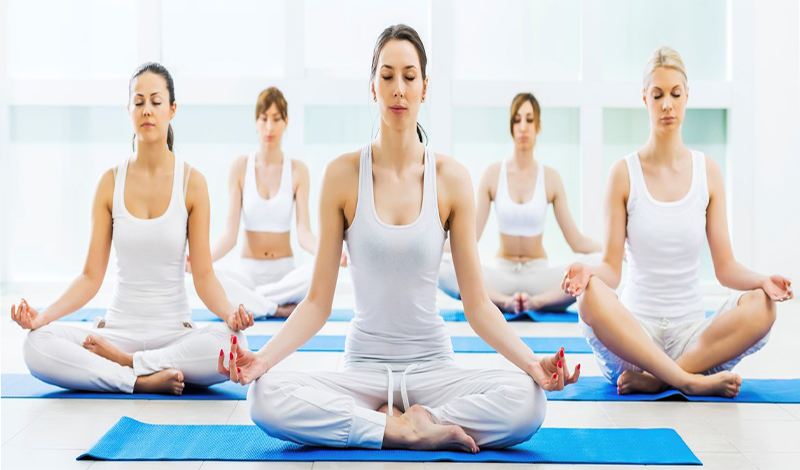
1. What Is Yoga?
The word yoga, from the Sanskrit word yuj, means to yoke or bind, and is often interpreted as “union” or a method of discipline. A male who practices yoga is called a yogi, a female practitioner, a yogini.
The Indian sage Patanjali is believed to have collated the practice of yoga into the Yoga Sutra an estimated 2,000 years ago. The Sutra is a collection of 195 statements that serves as a philosophical guidebook for most of the yoga that is practiced today.As we explore these eight limbs, we begin by refining our behavior in the outer world, and then we focus inwardly until we reach samadhi (liberation, enlightenment).
Today, most people practicing yoga are engaged in the third limb, asana, which is a program of physical postures designed to purify the body and provide the physical strength and stamina required for long periods of meditation.
2. Do I Have to Be Vegetarian to Practice Yoga?
The first principle of yoga philosophy is ahimsa, which means non-harming to self and others. Some people interpret this to include not eating animal products. There is debate about this in the yoga community. I believe that it is a personal decision that everyone has to make for themselves. If you are considering becoming a vegetarian, be sure to take into account your personal health issues as well how your choices will affect those with whom you live. Being a vegetarian should not be something that you impose on others that kind of aggressive action in itself is not an expression of ahimsa.
3. How Many Times Per Week Should I Practice?
Yoga is amazing even if you only practice for one hour a week, you will experience the benefits of the practice. If you can do more than that, you will certainly experience more benefits. I suggest starting with two or three times a week, for an hour or an hour and a half each time. If you can only do 20 minutes per session, that’s fine too. Don’t let time constraints or unrealistic goals be an obstacle do what you can and don’t worry about it. You will likely find that after a while your desire to practice expands naturally and you will find yourself doing more and more.
4. How Is Yoga Different From Stretching or Other Kinds of Fitness?
Unlike stretching or fitness, yoga is more than just physical postures. Patanjali’s eight-fold path illustrates how the physical practice is just one aspect of yoga. Even within the physical practice, yoga is unique because we connect the movement of the body and the fluctuations of the mind to the rhythm of our breath. Connecting the mind, body, and breath helps us to direct our attention inward. Through this process of inward attention, we learn to recognize our habitual thought patterns without labeling them, judging them, or trying to change them. We become more aware of our experiences from moment to moment. The awareness that we cultivate is what makes yoga a practice, rather than a task or a goal to be completed. Your body will most likely become much more flexible by doing yoga, and so will your mind.
5. I’m Not Flexible-Can I Do Yoga?
Yes! You are a perfect candidate for yoga. Many people think that they need to be flexible to begin yoga, but that’s a little bit like thinking that you need to be able to play tennis in order to take tennis lessons. Come as you are and you will find that yoga practice will help you become more flexible.
This newfound agility will be balanced by strength, coordination, and enhanced cardiovascular health, as well as a sense of physical confidence and overall well-being.


